Understanding Your Prescription, Pupillary Distance (PD), Segment Height (SH) & Ocular Height (OCH)
There are four key pieces of information you will be asked to submit during the order or as soon as possible post-order:
- Glasses Prescription
- Segment Height
- Pupillary Distance (PD)
- Ocular Center Height (OC)
Understanding Your Prescription
Optometrist Example

Entering Your Rx on Lensabl.com
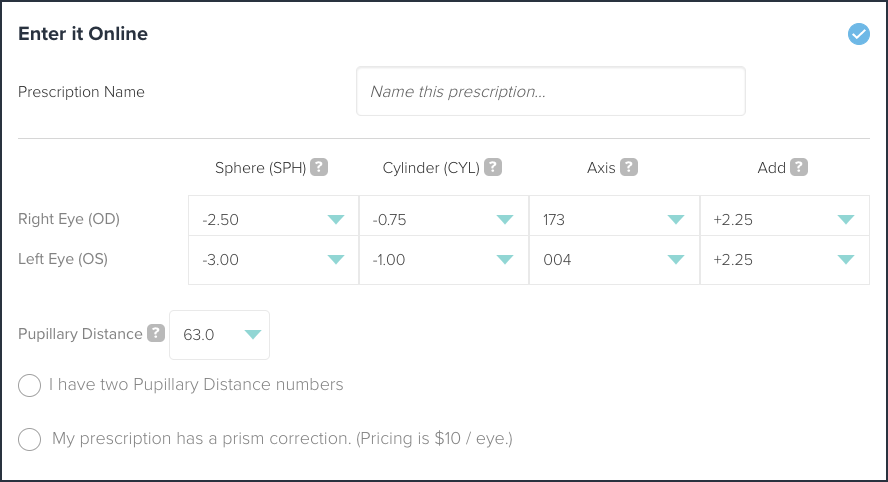
Need Help Understanding All Those Terms?
OD: Stands for “oculus dextrus”, Latin for your right eye.
OS: Stands for “oculus sinister”, Latin for your left eye.
Sphere (SPH): This indicates the lens power, prescribed to correct nearsightedness or farsightedness.
- If the number has a minus sign (–), you are nearsighted.
- If the number has a plus (+), you are farsighted.
Cylinder (CYL): This indicates the lens power for astigmatism. If nothing appears in this column, either you have no astigmatism, or your astigmatism is so slight that it is not necessary to correct it.
- If the number has a minus sign (–), you have a nearsighted astigmatism.
- If the number has a plus sign (+), you have a farsighted astigmatism.
Cylinder power is always after sphere power in an eyeglass prescription.
Axis: The axis defines the location of the cylinder powers on the lens with a number ranging from 1 to 180. Axis is only present if you have a Cylinder correction on your Rx.
PD: Stands for “pupillary distance”, the distance between your pupils.
ADD: The additional value or ADD is commonly used for bifocal or progressive lenses, as well as for reading glasses. Your doctor may write your ADD in the near vision (N.V.) or ADD section.
Prism Correction: This correction is for those who either have exotropia or esotropia. It will cost an additional $10/eye for correction.
Now that you know what it all means, here is how to make sure your prescription is valid.
- If there is a CYLINDER, there must be an AXIS.
- If there is an AXIS, there must be a CYLINDER.
- CYLINDER values must be either both positive or both negative values.
- If it says “SPH” or “SPHERE” for you CYLINDER, that means that there is only a correction for your sphere, not that they have the same value.
- If you order progressive/bifocal lenses, your prescription must have an ADD value.
- If you have an Rx with an “ADD”, but want to order single vision lenses for reading, then you will have to convert your Rx by simply adding the ADD values to your SPH, and that’ll be your new SPH.
Ex: If you have a SPH of +4.00 and an ADD of +2.00, then your new SPH value will be +6.00
Ex: If you have a SPH of -2.50 and an ADD of +1.00, then your new SPH value for that eye will be -1.50.
If you order single vision lenses for reading, and upload a copy of your script, we will make the calculation/conversion for you. For single vision for distance lenses, you can ignore your ADD values and just use the rest of the Rx normally.
Measuring Your Pupillary Distance (PD)
Your PD measurement indicates the distance between the centers of your pupils. It is a required measurement that ensures your new lenses are custom aligned over the center of your pupil for proper clarity.
Often times your PD will be indicated on your prescription from your Optometrist. If you don’t have it on hand we can measure it for you in just a few easy steps.

Self Pupillary Distance Measurement
There are two methods for providing an appropriate image for the Pupillary Distance Measurement. Both require you to log into your Lensabl account, view the order which needs updating under the “Orders” tab. Then scroll down to where it says "Pupillary Distance (PD) is required to complete your order".
Option 1: Upload a Photo
YOU NEED: a camera of any kind and a standard wallet-sized card (ID, Drivers License, Grocery Store Member Card, etc).
- Remove any glasses you may be wearing.
- Pinch the corner edge of the card and place horizontally under your nose, pressed up against your mouth.
- Grab your camera and look directly into the camera and snap a selfie! (Ensure your face is at eye level and you are not tilting your head in any way.)
- Upload your image to your account.
View Steps


View Example Image

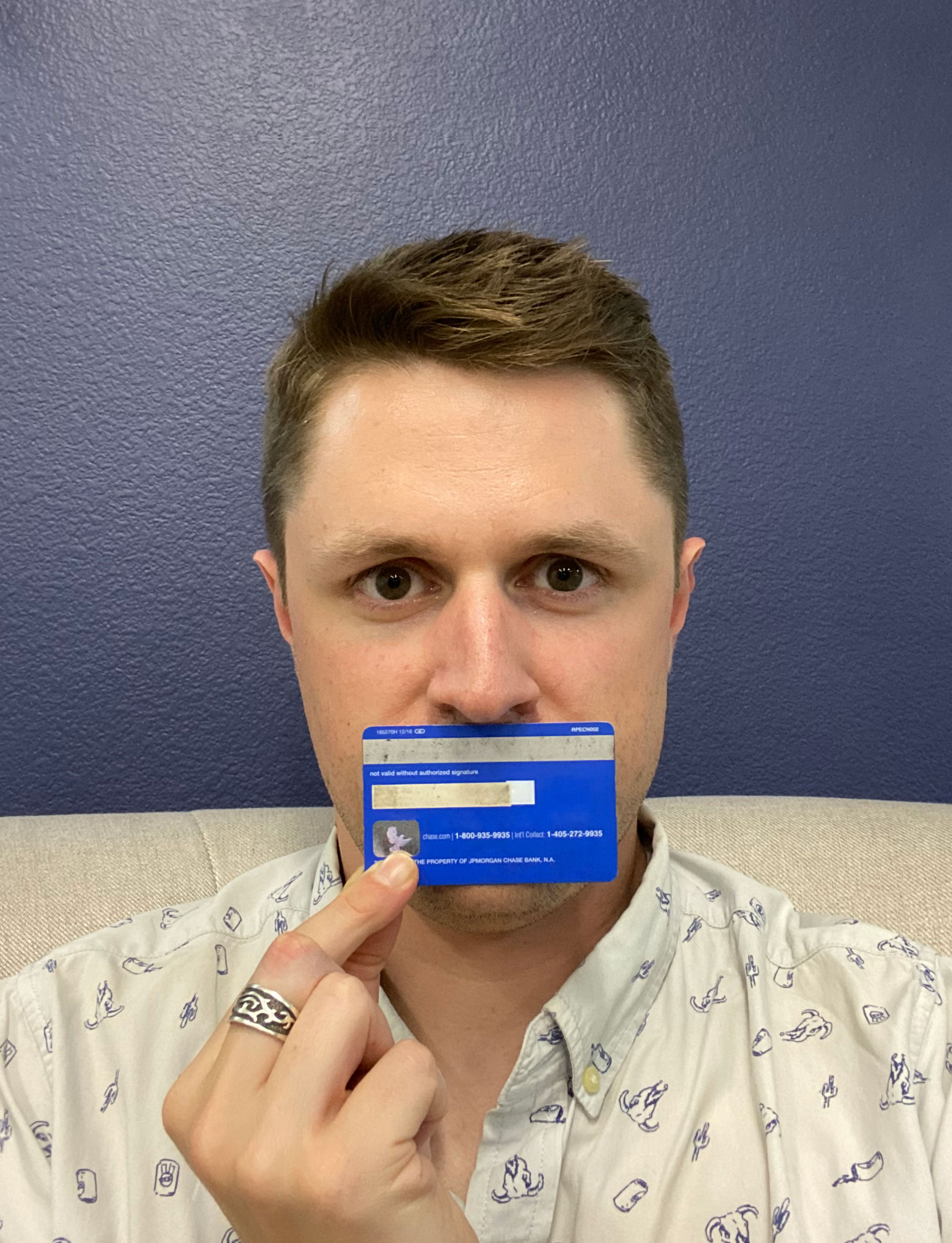
Option 2: Take Photo using our PD measurement app
YOU NEED: a computer with a webcam or iPad and a standard wallet-sized card (ID, Drivers License, Grocery Store Member Card, etc).
- Make sure you’re in a room with plenty of light!
- Allow access to your webcam.
- Follow the instructions on the screen.
- Take the photos and click confirm.
Your PD image will be reviewed by our lab experts. If our team is unable to get an accurate measurement based off of the photo you provided, you will be contacted via email with next steps.
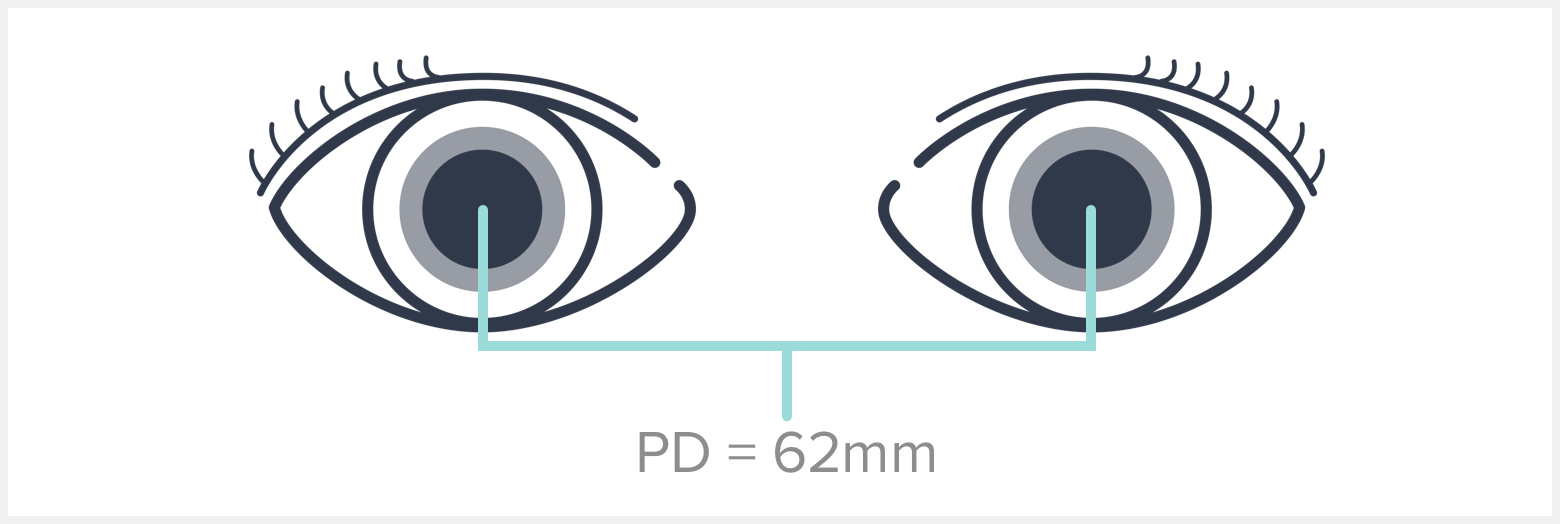
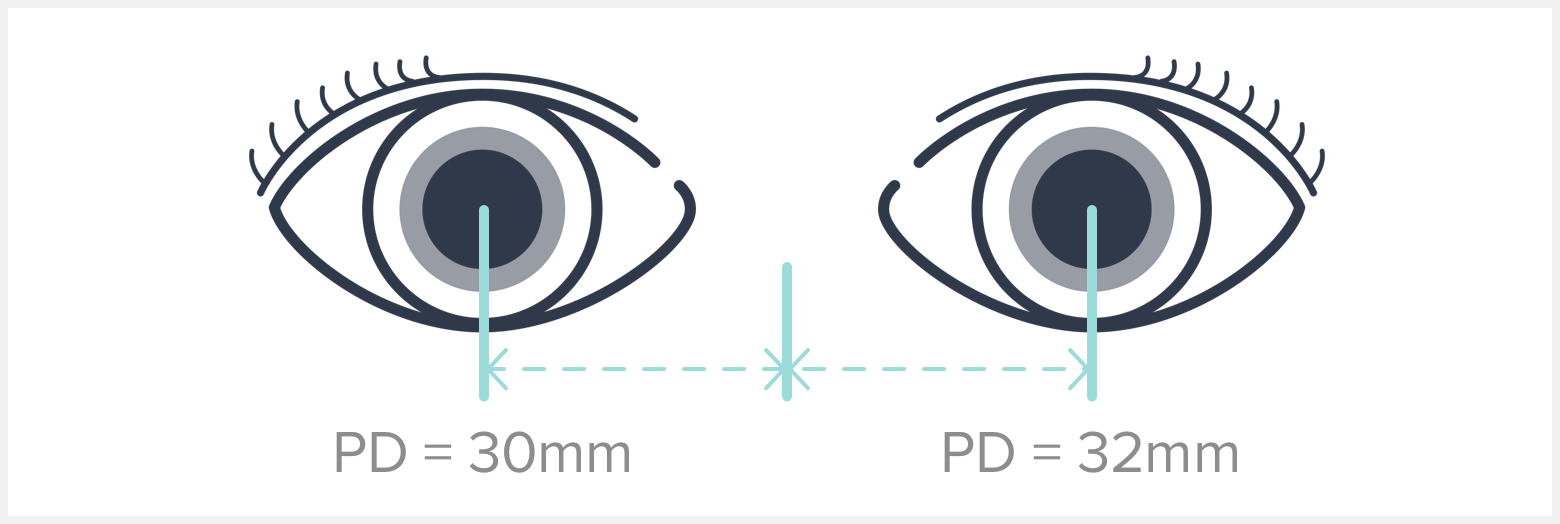
What is Single vs Dual PD?
SINGLE PD is the pupillary distance between the center of one pupil to the other, which can be a distance PD or near PD. Distance PD can be used to order any type of prescription glasses except reading glasses.

DUAL PD, or monocular PD, consists of two numbers and is the distance between the centers of each pupil to the bridge of the nose. Dual PD is usually written in the following notation: 33/31 (right eye, left eye).

Measuring Your Segment Height (SH)
Segment Height, also commonly referred to as Seg Height, is the vertical measurement in millimeters from the bottom of the lens in your frames, to the beginning of the progressive addition on a progressive lens, or the top line of a lined bifocal.
At Lensabl, we request your Seg Height measurements to ensure that your lenses are crafted exactly right for you.

Self Segment Height Measurement
All you need is a camera, standard wallet-sized card (ID, Drivers License, Grocery Store Member Card, etc), and the frames you need the measurement for.
- Make sure you are wearing the glasses you are getting new lenses for.
- Pinch the corner edge of the card and place horizontally under your nose, pressed up against your mouth.
- Grab your camera and look directly into the camera and snap a selfie! (Ensure your face is at eye level and you are not tilting your head in any way.)
- Upload your image to your account.
*For sun tinted lenses, you can try to make your pupils visible in the frame by taking the photo with a light source behind you.
View Steps


View Example Image

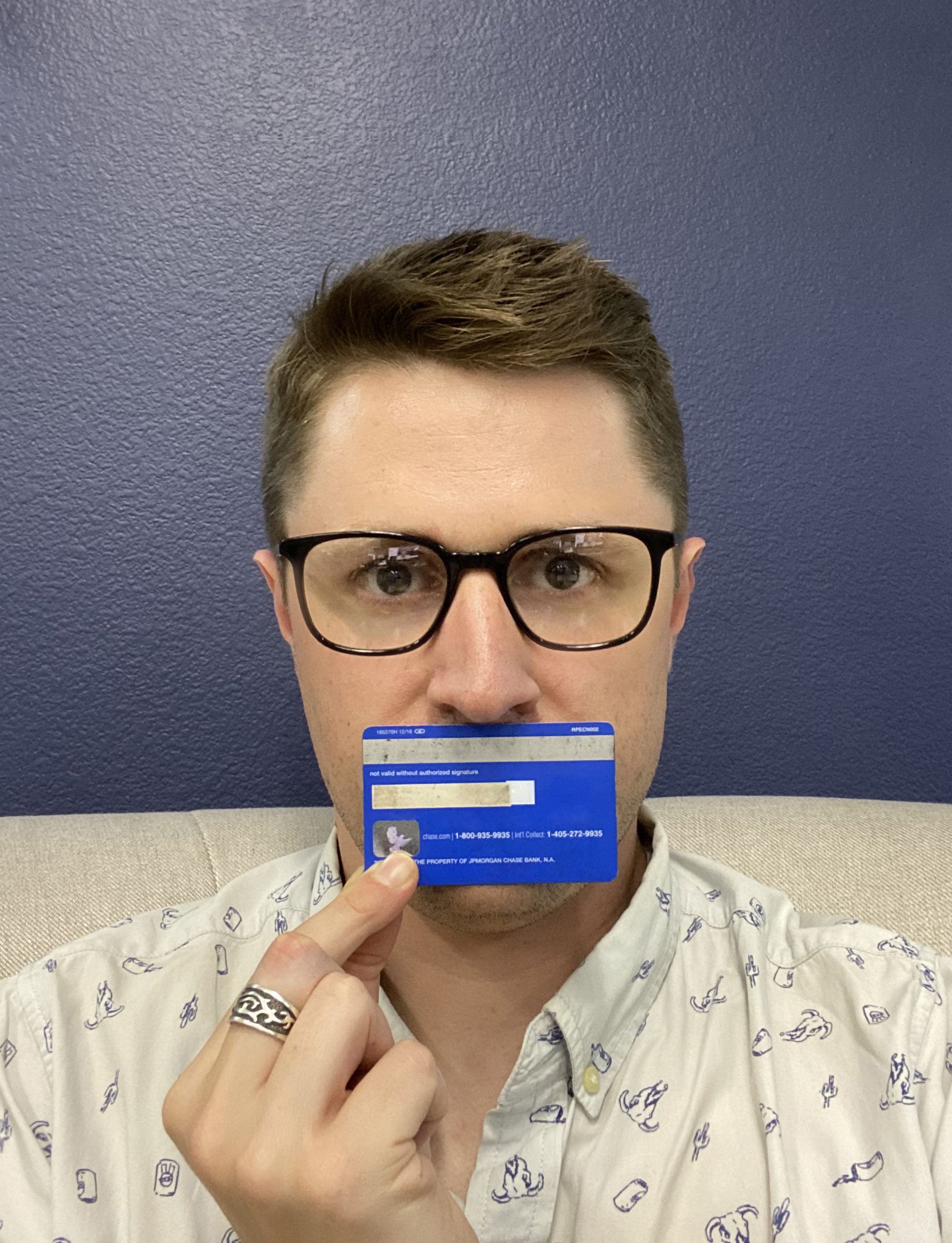
Measuring Your Ocular Center (OC)
The OC height is the center of the lens vertically from the bottom of the lens to the center of the pupil. OC and PD measurements are needed to properly place the lenses in your frames so that the ocular center (the area that gives you the truest vision) is directly in front of your pupils.

Self OC Height Measurement
All you need is a camera, standard wallet-sized card (ID, Drivers License, Grocery Store Member Card, etc), and the frames you need the measurement for.
- Make sure you are wearing the glasses you are getting new lenses for.
- Pinch the corner edge of the card and place horizontally under your nose, pressed up against your mouth.
- Grab your camera and look directly into the camera and snap a selfie! (Ensure your face is at eye level and you are not tilting your head in any way.)
- Upload your image to your account.
*For sun tinted lenses, you can try to make your pupils visible in the frame by taking the photo with a light source behind you.
View Steps


View Example Image


FAQ
I have a prescription for my contacts, can I submit that for my glasses?
- Contact lens prescriptions and eyeglass prescriptions are not the same. They are significantly different because eyeglass lenses are positioned approximately 12 millimeters from your eyes, whereas contact lenses rest directly on the surface of your eyes.
- If you want to wear both contact lenses and eyeglasses, you will likely need two separate prescriptions.
How do I know if my PD seems right?
- The average adult’s PD is between 54-74 mm.
- The average child’s PD is between 43-58 mm.
Like What You See?
Like What You See?
EDUCATION
ORDER SUPPORT
NEED A HAND? Contact Us
© Copyright lensabl 2025. All rights reserved.








